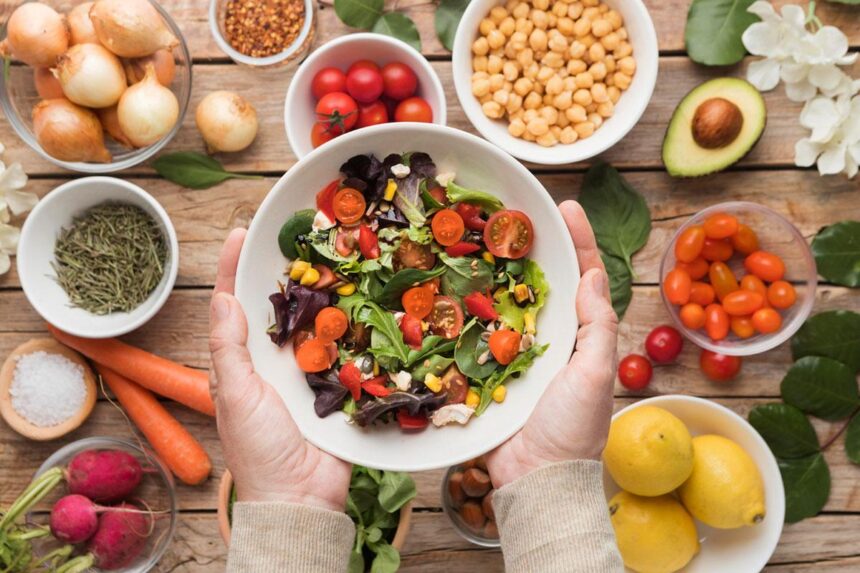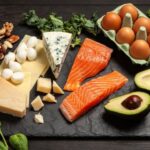There is a lot of talk about foods that cause inflammation in our body and those that, on the contrary, have an anti-inflammatory effect. Medical advances and our current pace of life have shown that many of the diseases and conditions that we suffer today are due to inflammatory processes that our body suffers. That is why the anti-inflammatory diet and its benefits are increasingly being proposed as the solution to many health problems. The truth is that scientific evidence increasingly supports diets based on foods rich in substances that protect us from chronic inflammation.
WHAT IS AN ANTI-INFLAMMATORY DIET?
It is a type of diet based on the consumption of foods classified as “anti-inflammatory”, which contain certain beneficial nutrients for the body, helping to reduce the state of inflammation at a systemic level. Likewise, there is also the group of foods that exerts the opposite effect, being “pro-inflammatory”. A timely example of an anti-inflammatory diet is the Mediterranean diet, based on vegetables, fruits, olive oil, whole grains, nuts and dairy products. At the other extreme we have an example of a pro-inflammatory diet, such as the Western diet, based on processed red meat, sugary drinks, salt and poor quality processed foods.
ANTI-INFLAMMATORY AND ANTIOXIDANT FOODS
FRUITS: They have a high variety of photochemicals such as carotenoids, flavonoids, polyphenols.
Red fruits: black grapes, blackberries, blueberries… Rich in flavonoids and anthocyanins, an antioxidant compound that helps the body combat cellular aging. They have a high concentration of resveratrol, which is associated with immunity, anti-inflammatory effect and reduction of oxidative stress.
Apple: Rich in quercetin (especially in skin), with a carcinogenic and antioxidant effect.
Citrus fruits such as guava, grapefruit, papaya, kiwi, strawberry and orange. Rich in vitamin C, a powerful antioxidant with cardiovascular, cerebrovascular and anti-inflammatory effects.
Pineapple: Rich in bromelain, with analgesic, antithrombotic, diuretic and anti-inflammatory effects.
VEGETABLES: Their consumption exerts a positive action on lipid profile, glucose, antioxidant and anti-inflammatory levels. Alternate between raw and cooked.
Onion: Rich in phytochemicals that exert antimutagenic, antitumorigenic and anti-inflammatory properties.
Cruciferous vegetables: Brussels sprouts, red cabbage, broccoli, etc.
Green leafy vegetables: watercress, spinach…
Pepper, especially red: high in vitamin C, a powerful antioxidant.
BLUE FISH: salmon, tuna, sardines, anchovies, bonito, etc. Rich in omega 3, bioactive components that exert a protective effect against chronic diseases.
FATS AND OLEAGINOUS:
Walnuts and flaxseed: Rich in omega 3 with an anti-inflammatory capacity and protective effect.
Chia: Rich in phenolic acids and omega 3. They control lipid metabolism and expression of anti-inflammatory cytiokines.
Virgin olive oil: rich in omega 3 and with a cardioprotective effect.
Avocado: they are rich in antioxidant vitamins, among which we highlight carotenes, effective free radical scavengers (an effect that contributes to their anti-inflammatory action).
SPICES:
Turmeric: Rich in curcumin that has anti-inflammatory and analgesic properties.
Ginger: It has anti-inflammatory and antioxidant properties. It is used for ailments such as asthma, lupus and arthritis.
Cinnamon, pepper, cloves, oregano, rosemary, plantain: With antioxidant and anti-inflammatory properties.
OTHERS:
Green tea and coffee: Contains polyphenols that exert anti-inflammatory and antioxidant effects in variable doses.
Probiotics such as fermented foods: kombucha, cheese, yogurt, etc.
FOODS TO AVOID (PRO-INFLAMMATORY)
Foods containing hydrogenated oils: margarines, lard…
Foods that contain processed flours: bread and refined carbohydrates.
Energy drinks, soft drinks, sweetened and with sugars.
Red meats (innards, steaks, etc.) and processed meats (sausages, hamburgers, meatballs, sausages, etc.).
Ultra-processed foods.
HEALTHY HABITS TO PROMOTE
Apart from a diet based on anti-inflammatory products, we must keep in mind that the diet never goes alone, and therefore it must be accompanied by healthy habits that will help enhance these antioxidant and anti-inflammatory functions that the diet itself will provide us with.
Sunbathe. Daily sun exposure of 15 – 20 minutes, without sun protection, will help the synthesis of vitamin D, essential nutrients for the proper functioning of the body.
Strength train a minimum of 2 – 3 days a week.
Walk 8,000 – 10,000 steps a day.
No Smoking.
Reduce or eliminate alcohol consumption as much as possible.
Respect circadian cycles as much as possible.
Sleep 8 hours a day.
WHO CAN BENEFIT FROM AN ANTI-INFLAMMATORY DIET?
The short answer is: EVERYONE. This is a type of diet that enhances the consumption of foods of plant origin, rich in interesting nutrients for the body: vitamins, minerals, antioxidants, fiber, etc. To this day, this is one of the best eating styles for the prevention of the most prevalent diseases today such as diabetes, cardiovascular diseases, etc.
Among the benefits of eating an anti-inflammatory diet, we highlight:
Prevents cardiovascular diseases, high blood pressure, cholesterol and diabetes
Helps maintain proper blood glucose levels
Improves digestion and reduces bloating and abdominal distension
Improves the immune system
Improves mood and energy recovery
Increases satiety













